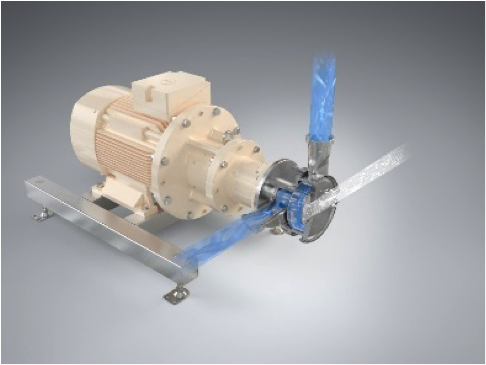
Five trends in mechanical process engineering
Submitted by:
Andrew Warmington
Dr Hans-Joachim Jacob, senior expert - process & applications, at Ystral, looks at some key trends changing production processes
New technologies, changed requirements in production and ever more frequent product changes, but also more strict specifications with regard to occupational and environmental protection are significantly changing many production processes. Below, five examples are discussed from a longer white paper on the subject.
Process intensification
Forward-looking technologies in process technology rely on process intensification and thus efficient use of the time, energy and raw materials used in a process. When mixing and dispersing with new optimised processes, the differences with regard to required energy, volume-specific capacity or newly created phase boundaries compared to conventional technologies such as agitators, injectors or high-speed dissolvers are significant.
In this context, Ystral, a mixing and dispersion technology specialist, offers the Ystral Conti-TDS disperser (pictured). This is operated outside the vessel, such that wetting and dispersing are concentrated in one dispersing zone with an effective volume of only about 0.25L. It generates about 30,000 times higher volume-specific power than a high-speed dissolver and shear forces 1,000 times higher.
Pollution-free process control
New findings with regard to health hazards when handling powders and liquids, more rigorous specifications concerning occupational safety, growing hygiene demands and, last but not least, the use of sensitive electronics increasingly make process control that is free from dust, gas and fumes a must-have.
Particularly for mixtures of dust and fumes, conventional technologies cannot rule out health hazards for the operator, as the powder materials are added to the liquid surface in the vessel in an open process. Health hazards and risks can be avoided with powder induction systems in which the powders are directly into the liquid dust-free rather than to the surface.
Fewer or no biocides
Manufacturers of very different industries have set themselves the objective of reducing biocides in their products or completely avoid them – for many different reasons, mainly because handling biocides is critical or because they are accompanied by undesirable effects in the end product. Giving up the use of biocides is possible if the product in the production process is not contaminated with germs, particularly germs from the ambient air.
With Ystral processes, powder and liquid components are added in a closed circuit. The interior of the process vessel is sealed off against the ambient air by means of sterile filters. In this way, lotions, shampoos or baby care products can be produced completely without preservatives.
Flexible modularisation up to machine level
In light of variable requirements, variable batch sizes and ever more frequent product changes, a flexible machine and plant design is becoming increasingly important. Manufacturers must be able to produce a large number of product versions and newly developed products order- and user-oriented. Whilst with a rigid design, machines and plants must be replaced completely in case of a process change, with modular systems, selective adaptations are sufficient.
With systems from Ystral, physical and control modules are flexibly combined in line with the modular principle, and can be adapted and extended in accordance with the requirements. On a machine level, the company uses conversion sets consisting of few parts, to adapt a universal basic machine to new requirements.
Twin-tank instead of single-tank
A twin tank plant is suited to continuous production of a product: while production takes place in one vessel, the finished product is pumped out in the second vessel. As soon as this vessel is empty, the switch occurs.
Ystral also uses the twin-tank principle to increase plant capacity, as the Conti-TDS disperser is only used for powder induction and dispersing, but not for other process steps, such as rinsing, filling and pumping out. Thanks to its alternating use on two identical process vessels, downtimes can be minimised. With the twin tank concept, Ystral can boost system efficiency by up to 100% with minimum additional space needed.
Final thoughts
The changes in process technology are varied, and do not always just point in one direction. Although, for example, for certain applications or industries such as pharmaceuticals, the development is towards a reduction in batch sizes, other industries are moving towards larger output quantities and continuous inline processes. Independent of this, the process technology systems that will prevail will enable decreased production costs, shorter production times, improved plant efficiency, lower energy consumption and more efficient use of raw materials.
Contact: Ystral
www.ystral.com/en/whitepaper-trends-mega-trends-in-process-technology/
